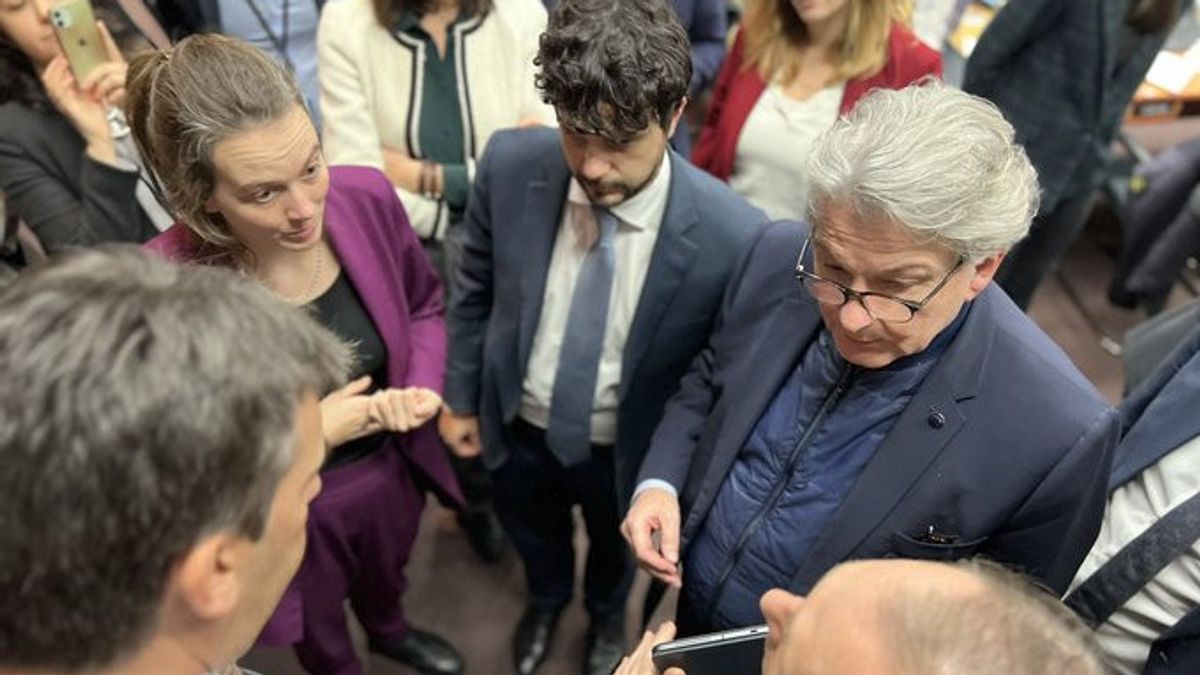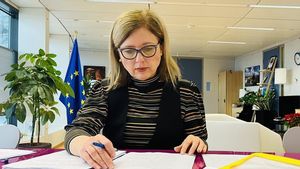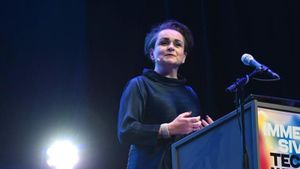JAKARTA - Legislators and the government of the European Union are still involved in a heated debate on Thursday, December 7 regarding a number of key issues in the sophisticated rules governing artificial intelligence (AI). This was revealed by two sources who are familiar with the situation. Now the negotiations have entered their second day.
Both sides agreed temporarily in the early hours of Thursday morning on how to regulate a rapidly growing generative AI system, such as ChatGPT. "The agreement is considered to address one of the biggest obstacles to the final deal," one source told Reuters.
However, two sources who did not wish to be identified because the secret nature of the talks stated other issues, such as the use of AI in biometric surveillance and access to the source code, still need to be discussed after 20 hours of negotiations.
The EU Council on Thursday postponed a press conference scheduled for 07.00 GMT until further notice while negotiations continued. Talks between governments of EU member countries and legislators began at 14.00 GMT on Wednesday, December 6.
Semi-marathon, marathon or ultramarathon?The #AIAct finish line is at hand 🏁No compromising on the EU general interest 🇪🇺Stay tuned — and awake ☕️ — for a possible deal later today… or tonight!#Trilogue pic.twitter.com/mE50h5Nln8
— Thierry Breton (@ThierryBreton) December 6, 2023
Semi-match, marathon or ultra marathon?The #AIACt finish line is at hand No comprifying on the EU general interest stairsStay tuned and awake for a possible deal later today... or tonight! #Trilogue pic.twitter.com/mE50h5Nln8
Amid tense debates and frustration over broken beverage machines, one of the sources said the delegates ran out of food and coffee at around 02.00 GMT.
"New day, same trilogue!" said EU industry chief Thierry Breton, in a post on social media platform X, referring to the negotiation process between Parliament, the EU Commission, and the Council.
In the accompanying photo of the upload, EU legislators Dragos Tudorache and Brando Benefei - who are also the main AI negotiators for Parliament - were seen intense discussions with MEP colleague Kim van Sparrentak, who also worked closely in drafting AI regulations.
EU member states and legislators have been trying to finalize the details of the regulations proposed by the European Commission two years ago, but it is difficult to keep up with rapid technological developments. This makes consensus difficult to achieve.
The new law is becoming very important for the EU bloc. It could be a blueprint for other governments as countries seek to make regulations for their own AI industry, alternative to China's lightweight US approaches and provisional regulations.
European Union countries and legislators seek to draw up a final deal to pass in the spring, ahead of the parliamentary elections in June in which the legislative process will stop. Failing to do so could lead to a delay in laws and blocks of 27 members losing profits as the first actor in regulating this technology.
Even so, it may take nearly two years before the law takes effect.
SEE ALSO:
The bill was first proposed in early 2021, nearly two years before the launch of the ChatGPT by Microsoft-backed OpenAI, which changes the potential use of this technology.
The founders of OpenAI, Sam Altman, and computer scientists have also given warnings about the dangers of creating a very intelligent machine that could threaten humanity.
A provisional agreement on the basic model - a generative AI such as OpenAI trained with large data sets to carry out various tasks - will be a major step. Details of the deal are not yet clear. A fourth source said there are still aspects to consider.
However, the final proposals from France, Germany and Italy that the maker of the genre AI model must self-regulate add tensions. The move will benefit French, Mistral, and German-based AI companies.
Regarding biometric surveillance, EU legislators want to ban the use of AI, but the government has pushed for exceptions to national security, defense and military objectives.
The English, Chinese, Japanese, Arabic, and French versions are automatically generated by the AI. So there may still be inaccuracies in translating, please always see Indonesian as our main language. (system supported by DigitalSiber.id)


















